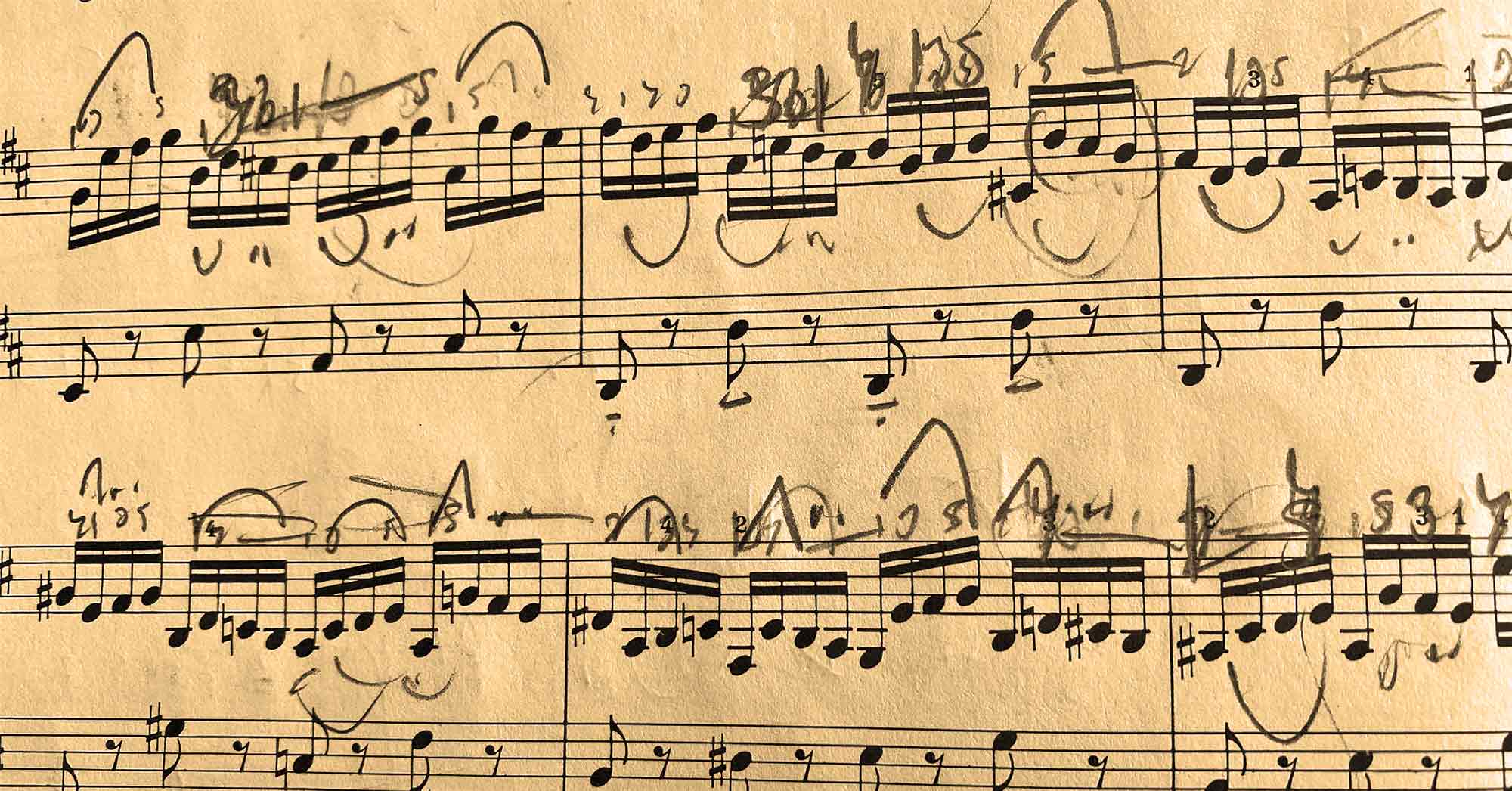We pianists are taught articulation primarily as a binary concept; it’s either long or short, legato or staccato. There are gradations; a dot over a dash implies short, but not too short. But even within one staccato dot there is ambiguity, possibility. If I saw a staccato 8th note in a piece by Stravinsky or Prokofiev, I’d ask How Short Do You Want It? and seek to execute atom-smashing brevity. If my friend & longtime principal flutist of the Berlin Philharmonic, Sir James Galway saw a staccato 8th note, he would respond from the traditional definition, that a staccato dot denotes half-length: a staccato-dotted 8th note is a 16th note long; a staccato quarter-note quite a languid 8th note as opposed to our instinctual quark-length punctuation. Between those two views of the same notation, there is, if not a capacious range, certainly a discernible range of possibility.
Bach used staccato notation very rarely through clearly & prescriptively. Mozart, with his occasional pairs or even strings of staccato notes, become ever more expressively pliant when we apply our tiny range of possible execution a gradually differentiated quartet of 16ths perhaps beginning quark-short and growing longer & more lyrical in preparation for an ensuing longer melody note. This practice brings melody alive in a truly operatic fashion; not Morse Code short or long, dot or dash, but truly creating a singing sound from the acknowledgement of Mozart (& Bach, Schubert, maybe even Brahms) being primarily a composer of vocal music. When we begin to wield these subtle gradations & possibilities, melody is literally infused with character & life. The short but essential leap we make: that there are as many possible articulations as there are consonants in German, Italian, any sung language. As well, there are as many types of connections between notes as a range of elisions, soft releases, ephemeral but palpable connection to definitive glottal stop.
Never miss out on Christopher’s events or special notices.
